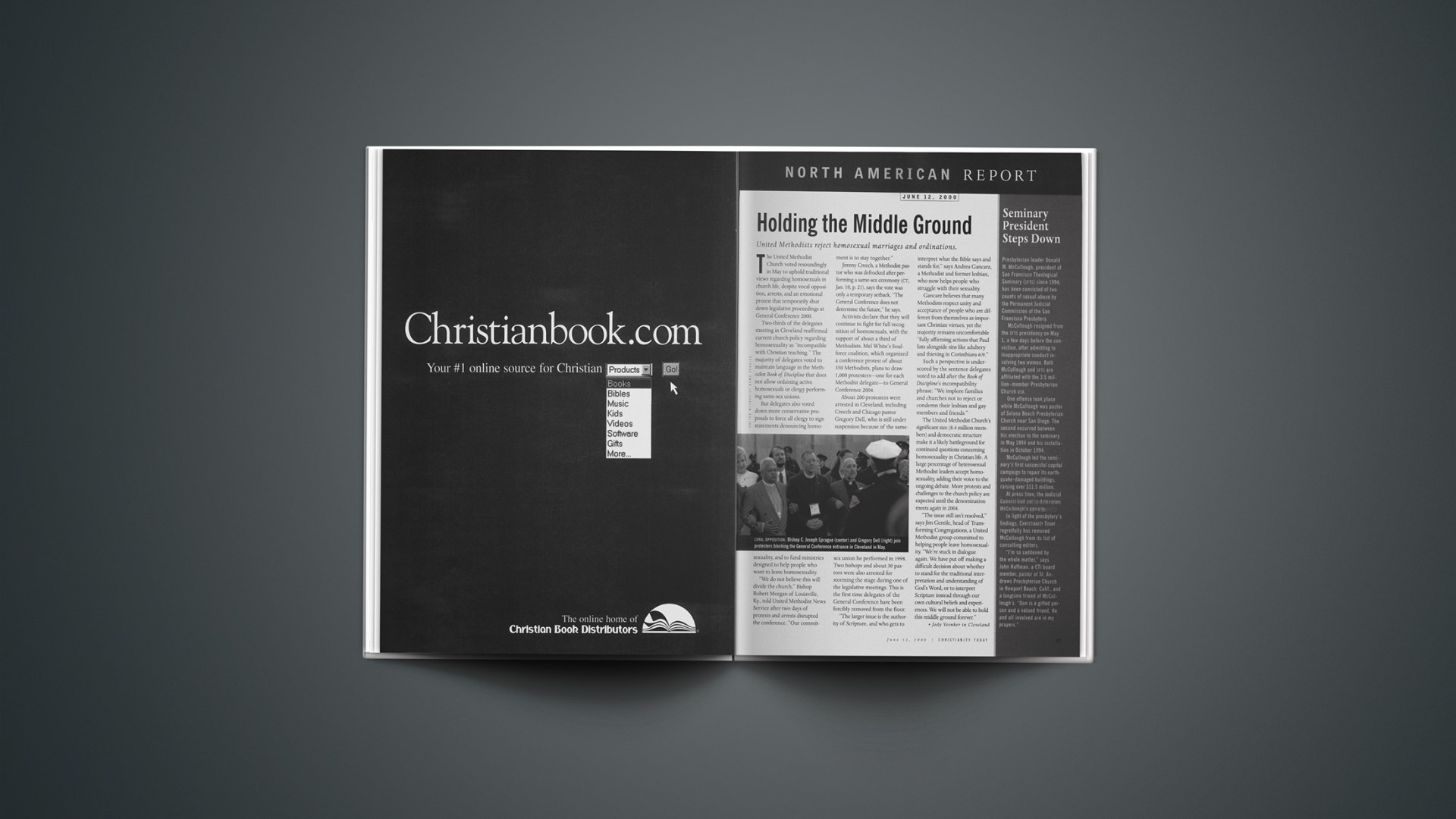The United Methodist Church voted resoundingly in May to uphold traditional views regarding homosexuals in church life, despite vocal opposition, arrests, and an emotional protest that temporarily shut down legislative proceedings at General Conference 2000. Two-thirds of the delegates meeting in Cleveland reaffirmed current church policy regarding homosexuality as
“incompatible with Christian teaching.”
The majority of delegates voted to maintain language in the Methodist Book of Discipline that does not allow ordaining active homosexuals or clergy performing same-sex unions.But delegates also voted down more conservative proposals to force all clergy to sign statements denouncing homosexuality, and to fund ministries designed to help people who want to leave homosexuality.
“We do not believe this will divide the church,” Bishop Robert Morgan of Louisville, Ky., told United Methodist News Service after two days of protests and arrests disrupted the conference. “Our commitment is to stay together.”
Jimmy Creech, a Methodist pastor who was defrocked after performing a same-sex ceremony (CT, Jan. 10, p. 21), says the vote was only a temporary setback.
“The General Conference does not determine the future,” he says.
Activists declare that they will continue to fight for full recognition of homosexuals, with the support of about a third of Methodists. Mel White’s Soul force coalition, which organized a conference protest of about 350 Methodists, plans to draw 1,000 protesters—one for each Methodist delegate—to General Conference 2004. About 200 protesters were arrested in Cleveland, including Creech and Chicago pastor Gregory Dell, who is still under suspension because of the same-sex union he performed in 1998. Two bishops and about 30 pastors were also arrested for storming the stage during one of the legislative meetings. This is the first time delegates of the General Conference have been forcibly removed from the floor.
“The larger issue is the authority of Scripture, and who gets to interpret what the Bible says and stands for,” says Andrea Gancarz, a Methodist and former lesbian, who now helps people who struggle with their sexuality. Gancarz believes that many Methodists respect unity and acceptance of people who are different from themselves as important Christian virtues, yet the majority remains uncomfortable “fully affirming actions that Paul lists alongside sins like adultery and thieving in 1 Corinthians 6:9.”
Such a perspective is underscored by the sentence delegates voted to add after the Book of Discipline‘s incompatibility phrase:
“We implore families and churches not to reject or condemn their lesbian and gay members and friends.”
The United Methodist Church’s significant size (8.4 million members) and democratic structure make it a likely battleground for continued questions concerning homosexuality in Christian life. A large percentage of heterosexual Methodist leaders accept homosexuality, adding their voice to the ongoing debate. More protests and challenges to the church policy are expected until the denomination meets again in 2004.
“The issue still isn’t resolved,” says Jim Gentile, head of Trans forming Congregations, a United Methodist group committed to helping people leave homosexuality.
“We’re stuck in dialogue again. We have put off making a difficult decision about whether to stand for the traditional interpretation and understanding of God’s Word, or to interpret Scripture instead through our own cultural beliefs and experiences. We will not be able to hold this middle ground forever.”
Copyright © 2000 Christianity Today. Click for reprint information.










